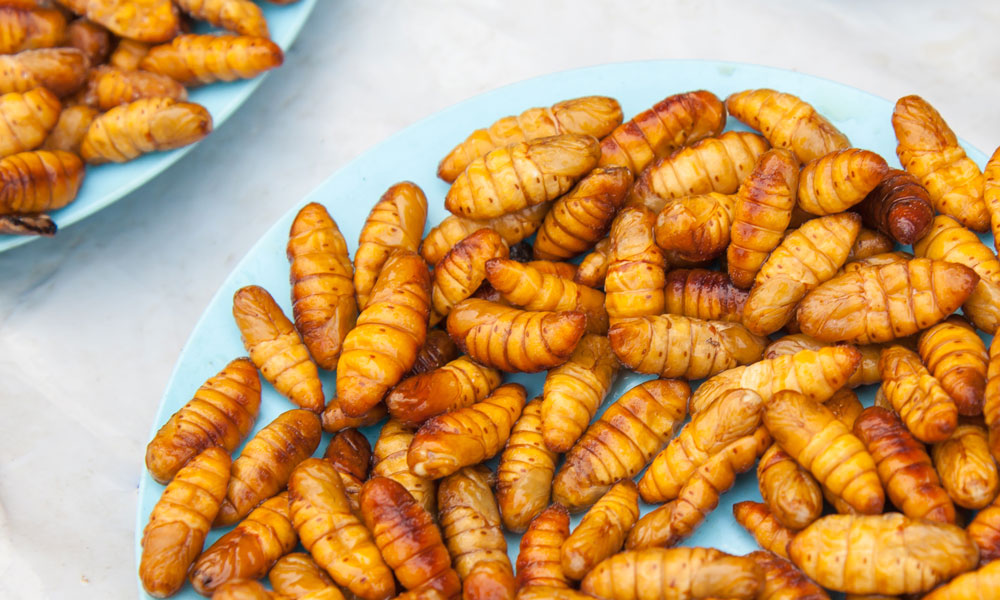
Insects for Dinner? New Trade Group Hopes to Make the Case
The North American Edible Insects Coalition, which is currently leapfrogging into existence, hopes to prove to the public that the stigma of eating bugs is old hat. The group, launched at an event in Detroit, highlights the fact that some startups see the Motor City as ripe for edible-bug manufacturing.
If reading about eating bugs … uh, bugs you, you might want to stop reading now.
For the rest of you, the edible-bug industry really wants you to know that it’s not as weird as it sounds and that an association is being created to highlight just how great bug tacos actually are.
This weekend, the North American Edible Insects Coalition (NAEIC) is holding its first-ever meeting as part of the Eating Insects Detroit conference, taking place at Wayne State University. NAEIC will pick its initial board and members during the meeting.
Why now? Well, NAEIC founder Robert Nathan Allen, founder of the the edible insects nonprofit Little Herds, says that the industry has finally seen a breakthrough in the form of cricket flour, which has become increasingly popular as a protein source.
“We are forming the North American Edible Insects Coalition trade organization because the ‘OMG, eating bugs!’ phase is done and most consumers have heard of consuming crickets as an alternative protein,” Allen said in comments to FoodNavigatorUSA.com this week. “The edible insect industry is now in the consumer mainstream with entry to grocery stores like Publix and retail outlets such as Disney World. … Our goal is that soon the average US consumer will enjoy cricket tacos as easily as we now enjoy a sushi roll.”
The group may be unusual, but equally unusual is the conference itself, which is the first of its kind to look at edible insects as a legitimate phenomenon. In comments to the Detroit Free Press, Wayne State anthropologist Julie Lesnik, who helped organize the conference, noted that the stigma was hard to shake.
“We have a weird relationship to insects,” Lesnik explained. “They’re not food to us. It’s like you’re getting people to eat rocks. There are regulations about how many insect parts can be accidentally in your food, but no regulations for people who actually want to eat them.”
The Detroit region, however, appears to be more open to the phenomenon than most, with local startups like Detroit Ento launching factories to produce both frozen and powdered edible crickets. The firm’s cofounder, Theo Kozerski, sees the Motor City as prime territory to become the Bug City.
“We really see the chance for the urban, vertical space as a huge opportunity, especially in Detroit with brownfield redevelopment and blighted property redevelopment potential,” Kozerski told the Free Press.
But for bugs to become a source of food for the public at large, standards that the public can trust and accept are required. FoodNavigatorUSA.com reports that NAEIC hopes to look into researching the market, spotting the potential for food allergies, and lobbying for specific bug-food regulations.
“And of course, concerted marketing and public awareness campaigns educating the public about the industry as a whole,” Allen added.
(iStock/Thinkstock)






Comments